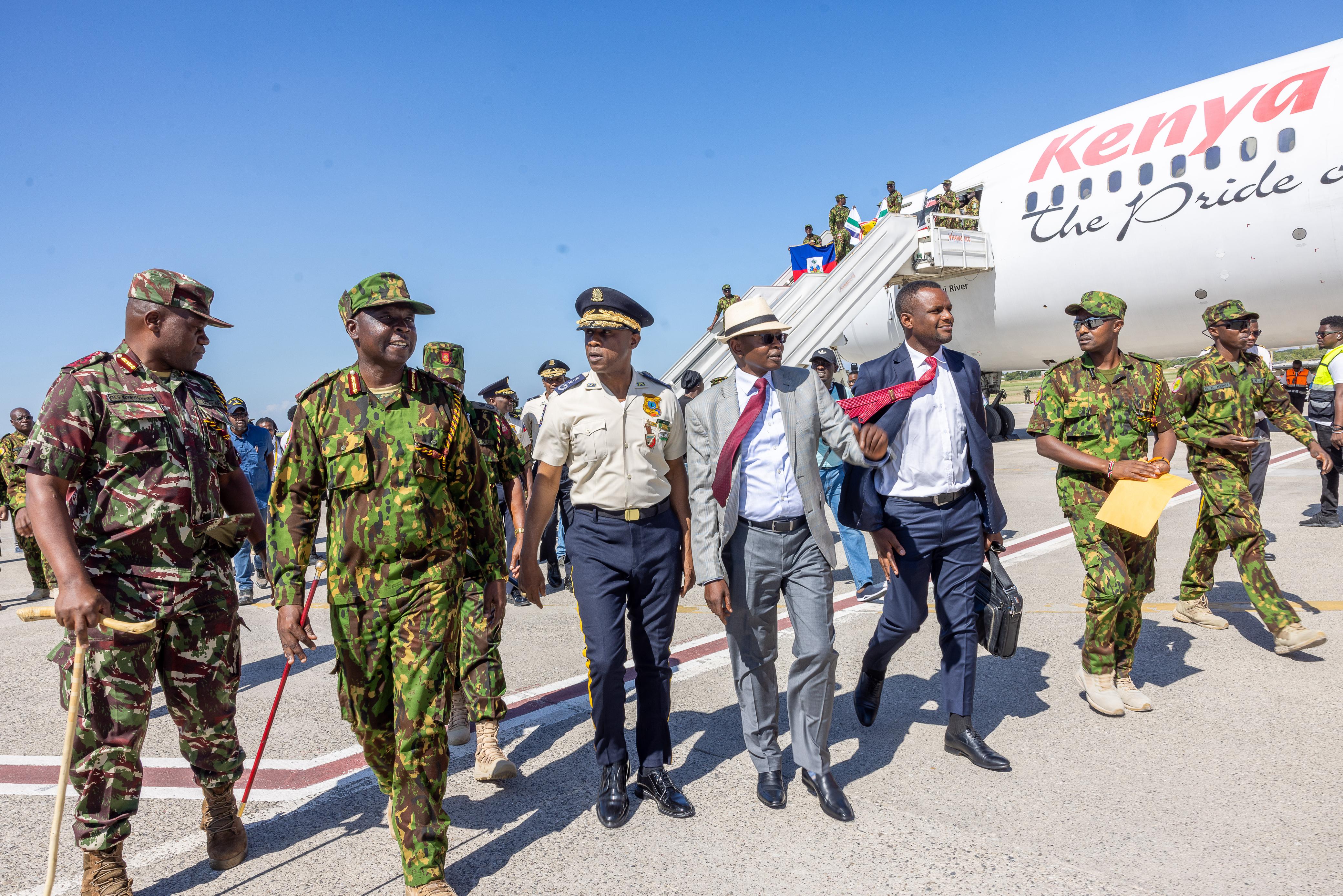
The US government has frozen more than US$13 million (Sh1.7 billion) in funding for the Kenya-led Multinational Security Mission in Haiti following President Donald Trump’s 90-day foreign aid pause.
The United Nations confirmed the development on Tuesday, which caught many off-guard including officials in Kenya.
“The US had committed $15 million to the trust fund; $1.7 million of that had already been spent, so $13.3 million is now frozen,” UN spokesperson Stephane Dujarric told reporters.
“We received an official notification from the US asking for an immediate stop work order on their contribution.”
The international security mission, while approved by the U.N. Security Council, is not a United Nations operation and currently relies on voluntary contributions.
The mission has so far made little progress toward helping Haiti restore order.
There are around nearly 900 police and troops from Kenya, El Salvador, Jamaica, Guatemala and Belize.
More than $110 million has been paid into a U.N. trust fund for the mission, more than half of it from Canada, according to U.N. data.
Just hours after taking office on January 20, Trump ordered a 90-day pause so foreign aid contributions could be reviewed to see if they align with his "America First" foreign policy.
The Kenya-led mission remains dependent on voluntary contributions, which have so far been limited.
The fund itself was created at Washington’s insistence to encourage member states to contribute, but many countries remain hesitant, citing donor fatigue.
Despite its initial momentum, the security mission remains underfunded and operating with only a fraction of the planned 2,500 security personnel.
On Tuesday, 70 Salvadoran soldiers arrived in Port-au-Prince, though they are not combat troops but aviation specialists deployed to handle medical evacuations — previously carried out by US and Dominican military aircraft.
The freeze on US funds is part of Trump’s broader review of foreign assistance, a policy shift aimed at ensuring aid aligns with his administration’s “America First” foreign policy.
In Haiti, where the US is the single largest donor, the aid freeze has forced clinics providing HIV/AIDS treatment to suspend operations, and security advisers hired to assist both the Haiti National Police and the Kenya-led mission have been laid off, according to the Miami Herald.
During his Senate confirmation hearing, US Secretary of State Marco Rubio expressed gratitude to Kenya for leading the Haiti mission and signalled support.
However, neither him nor Trump has confirmed whether the US intends to continue financial backing for the operation.
Chronic instability, dictatorships and natural disasters in recent decades have left Haiti the poorest nation in the Americas.
Last year, Haiti saw a record number of neighbourhoods in Port-au-Prince and surrounding areas fall to armed gangs, despite the presence of foreign forces and a new U.S.-backed transition government.
As the gangs took over neighbourhoods and carried out some of the worst massacres in recent memory, they also deepened the country’s humanitarian crisis as tens of thousands more Haitians were forced to flee their homes.
The United Nations said more than 5,600 people were killed by gang violence last year, an increase over the previous two years, and over 1 million Haitians are now displaced. Kenya promised 1,000 police officers as part of its offer to lead the mission.












